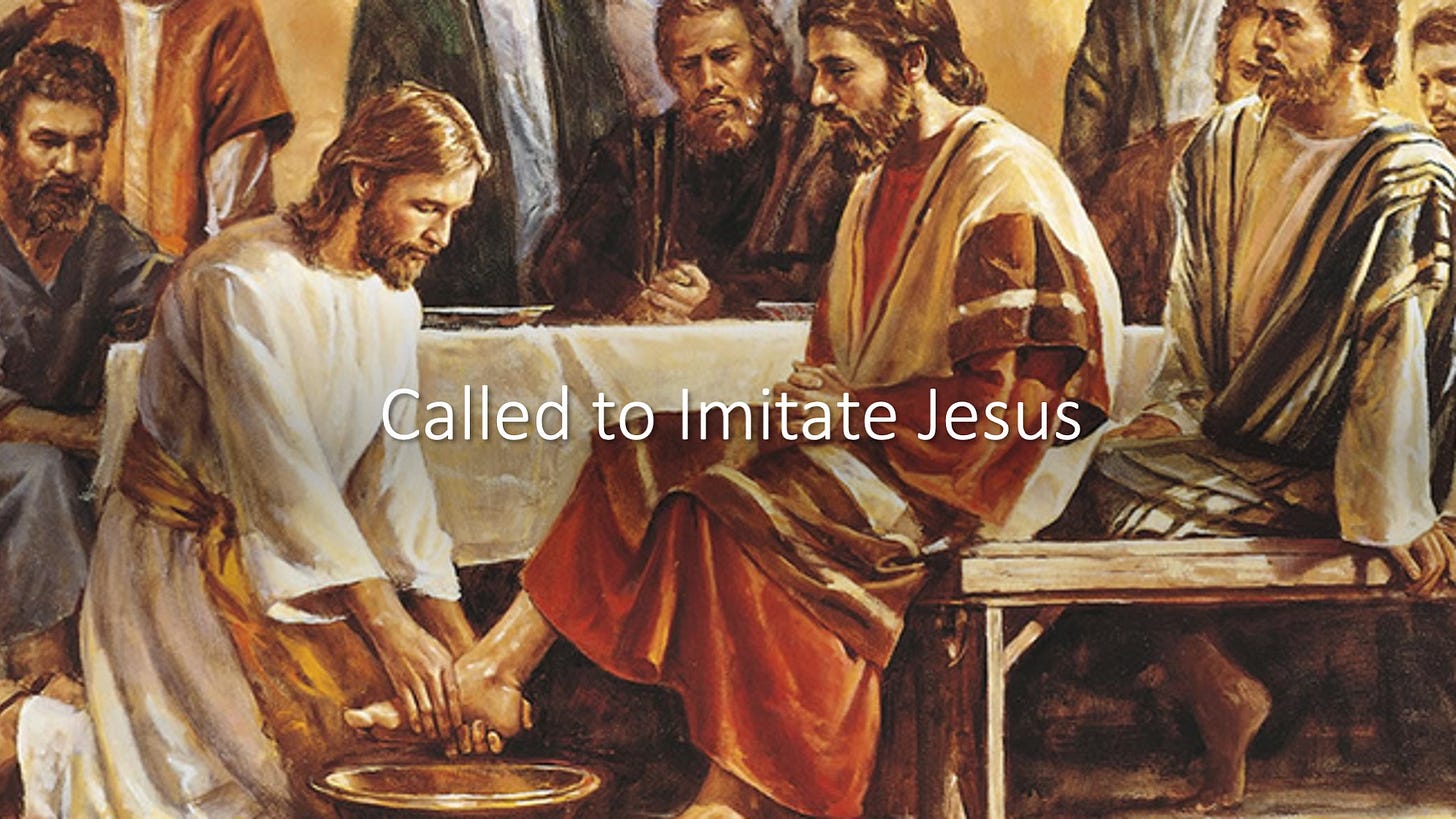Exodus 12:1-8, 11-14; 1 Corinthians 11:23-26; John 13:1-15
The liturgy of Holy Thursday reveals to us the mystery of the Eucharist rooted in the feast of Passover. Passover does not only commemorate the liberation from the slavery of Egypt, but it also contains within itself the hope of liberation from slavery to sin. At the center of the liturgy of Passover is a lamb that is killed. Its blood protects against the angel of death and its body is consumed with unleavened bread and bitter herbs (Ex. 12:6-11).
At the center of the Eucharist is the bread and wine identified with the body and blood of the Lamb of God. The night before departing from Egypt, Israel offered a lamb, the night before his passion, Jesus takes bread and wine, and says, "This is my body;" "This cup is the new covenant in my blood" (1 Cor.11:24-25). A new covenant between God and humanity is being established, a covenant foretold long ago by Jeremiah (Jer. 31:33-34). With this covenant also comes a new commandment: "love one another as I have loved you" (John 13:34).
How has Jesus loved us? It was love that motivated the Word to leave the Father and dwell among us (John 1:14; John 3:16). Now, the time for Jesus' "Passover" has come, namely "to pass over" from this world to the Father (John 13:1). Jesus leaves this world and returns to the One who sent him into this world. But returning to the Father, Jesus takes with him from this world our redeemed humanity. Love motivated the Word dwelled among us, and the depth of this love shines fully on the cross: Jesus Christ has loved us to the end (John 13:1).
By washing the feet of the apostles, Jesus did what normally slaves were doing to their masters. Jesus' action is the best commentary on the hymn of Saint Paul where we read that Jesus took the form of a servant and humbled himself, becoming obedient to the point of death on the cross (Phil. 2:7-8). Just as the water from a basin washes the feet of the disciples, so the blood of Jesus that will flow from the cross washes their hearts. But, the washing of the feet is also a commentary on the call to discipleship: "If anyone would come after me, let him deny himself and take up his cross daily and follow me" (Luke 9:23). Thus the cross means washing each other's feet, carrying one another's burdens (Gal. 6:2), and giving our lives for Christ, his Gospel, and our brothers and sisters.
Before the Last Supper, Judas had already made his decision to betray Jesus (John 13:2-3). When did he make up his mind? Was it during that dinner in Bethany where he scolded Mary for using "a pound of expensive ointment made from pure nard" to anoint Jesus (John 12:1-6)? On the other hand, Peter’s objection brings to mind his similar reaction to the announcement of Jesus' death and resurrection. Then he said, "Far be it from you, Lord! This shall never happen to you"(Matt. 16:22), now he says: "Lord, do you wash my feet? [...] You shall never wash my feet" (John 13:6,8). Thus, on the one hand, Christ's love to the end is being rejected (Judas) and on the other hand, it is misunderstood (Peter).
"How shall I make a return to the Lord for all the good he has done for me" (Ps. 116:12)? The answer is straightforward: participate in the Eucharist. "I will lift up the cup of salvation and call on the name of the Lord" (Ps. 116: 13). The Eucharist means thanksgiving. How else shall I repay God for His love for me? By imitating Jesus' loving service to one other (Gal. 5:13): "For I have given you an example, that you also should do just as I have done to you" (John 13:15).




